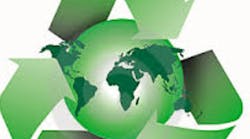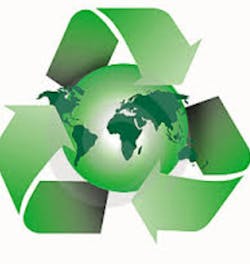How dentists can help preserve the environment
In today’s world, cries for sustainable “green” business practices have become louder and more influential. In fact, surveys show that as much as 42% of the population would choose to buy from companies that are environmentally friendly, and an overwhelming 80% would prefer to work for an employer that cares about sustainable practices.
As a dentist, the green movement might seem like a distant problem. After all, dentistry doesn’t contribute tons of greenhouse gases or deforest the Amazon. Dental practices do, however, have some responsibility to make sure their procedures do not harm the environment in other ways, for example, through mercury waste.
A renewed and heartfelt commitment to shifting toward sustainability can revolutionize your dental practice, making it seem more attractive to potential clients and cementing your current patients. Here are a few ways dentists can help preserve the environment.
Invest in an amalgam separator
As mentioned above, one of the primary environmental problems dentistry poses is mercury contamination. This is because mercury is one of the chemicals used in dental amalgams to bind the metals together. When the waste generated from those dental amalgams is disposed, this mercury enters into the environment, contaminating bodies of water with a poisonous substance and posing a problem to the ecosystem, and potentially other humans.
Luckily, making sure your dental amalgam waste doesn’t include mercury is relatively easy.
Luckily, making sure your dental amalgam waste doesn’t include mercury is relatively easy. Simply invest in an amalgam separator. As the name implies, amalgam separators filter the dangerous waste particles from a dental practice’s wastewater system, thus making it possible to safely dispose of substances like mercury.
Recycle
It’s common enough to recycle paper and plastics, but leftover mercury is another substance that can be recycled. Of course, this largely depends on the capacity of the specific recycler in your area, but this possibility is a good way to not only refrain from harming the environment, but to actively save it. The American Dental Association’s website is a good place to check whether your nearby recyclers can handle mercury waste.
Avoid mercury
Another way to prevent mercury contamination is to avoid mercury altogether. Although the material is commonly used in amalgams as a sealant to solidify and strengthen the other metals involved, alternatives such as composites, gold, and ceramics exist that can take mercury out of the picture entirely. You can’t pollute with what you don’t use, so changing the way your practice handles fillings can dramatically change your environmental footprint.
Reuse
Mercury contamination from dental amalgams may be environmentalists’ primary concern, but there are other ways dental practices can work to preserve the environment. Choosing reusable products rather than disposables is an effective way to reduce your environmental impact. For example, replacing the endless paper cups your practice goes through with washable, disinfectable plastic alternatives can save the amount of paper you use each year. However, the trade-off is that you use more water.
Not only does investing in reusable items protect the environment, it also makes it less expensive to maintain your practice. Replacing disposable goods such as paper towels and syringe tips can mean the practice spends an extra $2,000 every year. That means that shifting to greener solutions is not only a more sustainable, but also a cheaper solution.
The sustainability movement may seem distant at first, but it can be quite relevant to the day-to-day workings of your dental practice. But maintaining a commitment to be environmentally ces can be beneficial to any dental practice in the long run.


